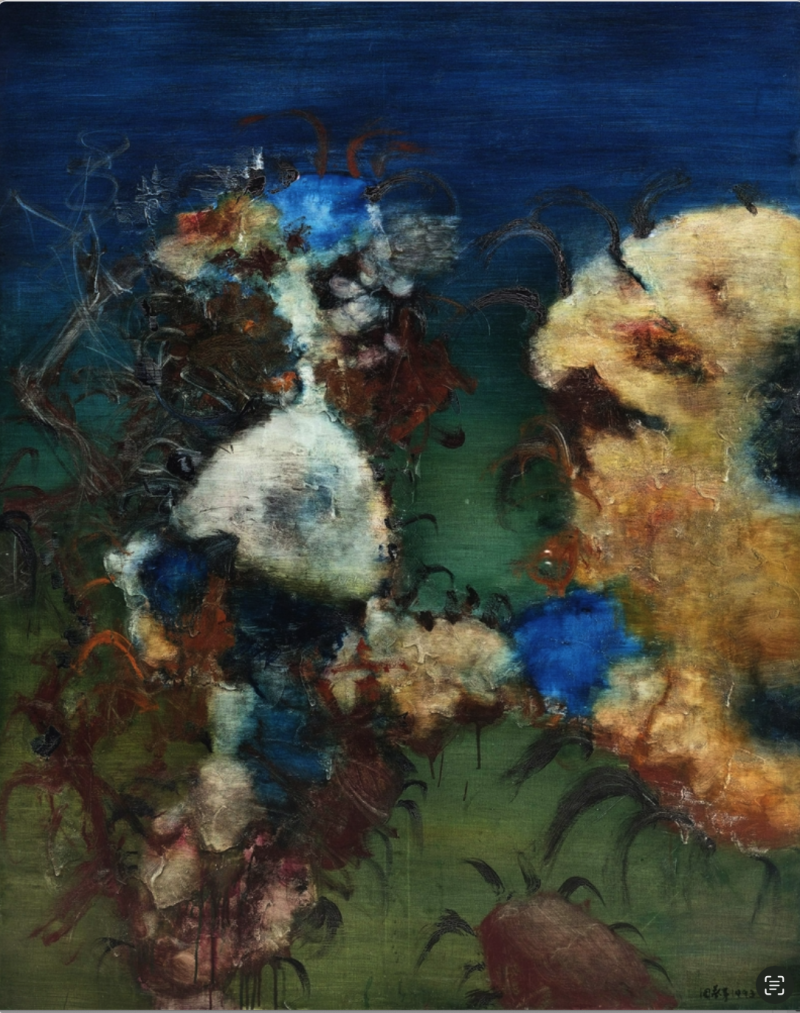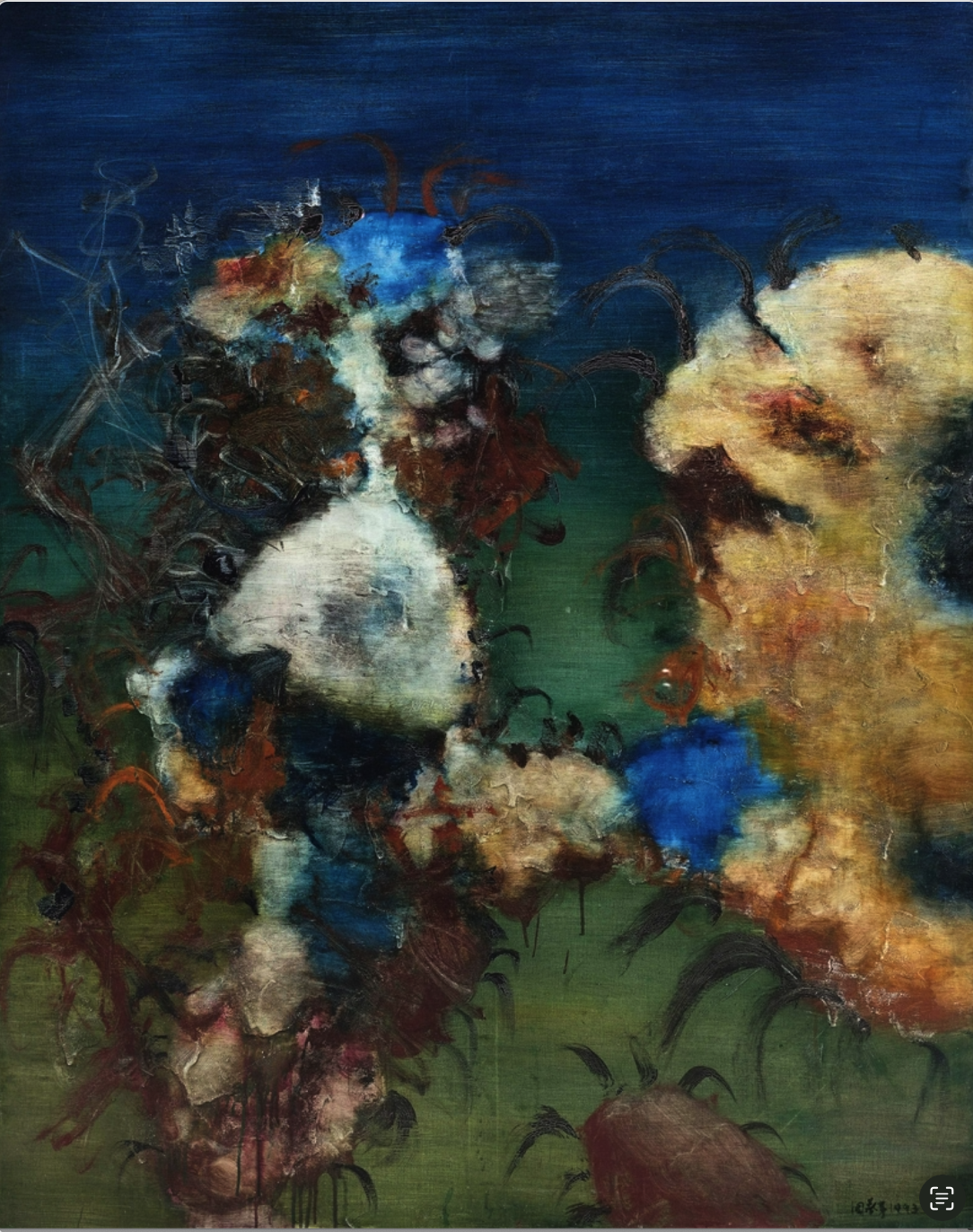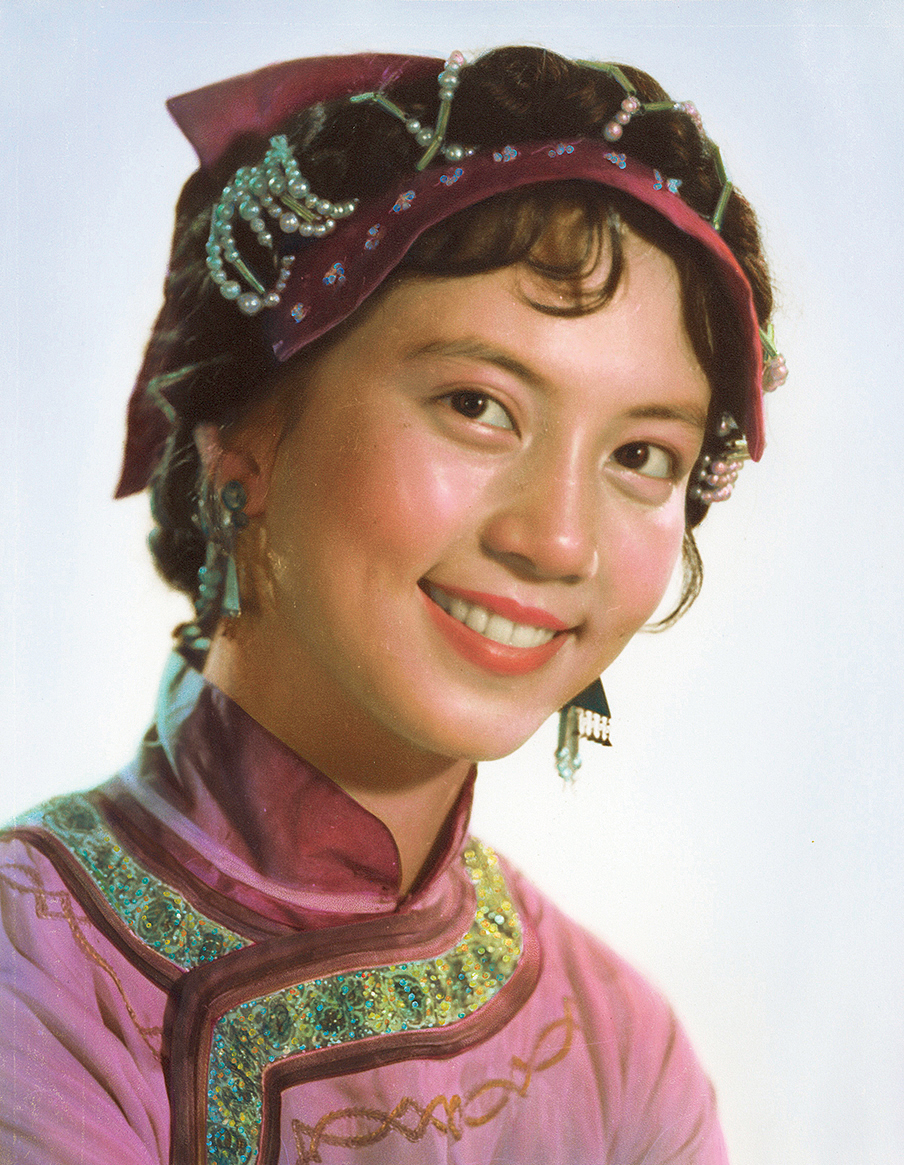
Zhou Chunya
Chinese Landscape
1993
Oil on Canvas
Zhou Chunya, born in 1955 in Chongqing, established himself as a pioneering figure in the fusion of Chinese and Western artistic traditions during the 1980s and 1990s. After graduating from the Printmaking Department of the Sichuan Fine Arts Institute in 1982, he pursued further studies at the University of Kassel in Germany in 1988, where he witnessed the rise of Neo-Expressionism, leading him to critically reflect on the modern transformation of traditional Chinese art. In the early 1980s, Zhou gained recognition with his Tibetan Series. Upon returning to China in the 1990s, he launched the Mountain and Rock Series, blending the expressive spirit of literati painting with the bold brushwork of German Expressionism. During this period, he navigated a dual path of departure and return, transitioning from ethnic themes to cultural symbols, injecting traditional literati painting with contemporary visual dynamism.
While creating Chinese Landscape, Zhou Chunya was engaged in the study of literati landscape painting. He was particularly drawn to the classical literati depictions of rocks, but found their gentle and introspective qualities unsatisfying. Instead of approaching them through the lens of material properties and compositional forms, like traditional Chinese painters, he focused on capturing texture and surface details, exploring the latent visual elements embedded in their natural characteristics. Near the signature on Chinese Landscape, the artist inscribed the words “Stone Series – Rocks and Weeds”, revealing the work’s original title and serving as a reminder that beneath the strong influence of Neo-Expressionism, he never abandoned the themes of Chinese literati painting. The work combines traditional calligraphic brushwork with powerful and explosive strokes, transforming the gentle and introspective quality of literati painting into an expression of force and speed. In doing so, it became a symbolic representation of the 1990s.



